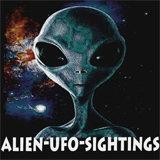What’s the Alternative?
In the late 1970s, UFOs enjoyed one of their periodic bursts of mass popularity.
Believers and skeptics in Britain had plenty to discuss following Anglia TV’s April 1, 1977, broadcast of a documentary called Alternative 3. The film “revealed” that Washington and Moscow had for many years conducted joint space-travel research, with the objective of removing a select portion of humankind from Earth before pollution and other vandalism destroyed the planet.
Forgetting for a moment the film’s April Fool’s broadcast date, and even assuming that the titanic sums needed to finance off-world construction could be hidden from the GAO, Congress, Russia’s Ministry of Finance, and similar bodies, and that every one of the tens of thousands of clandestine participants would keep his and her mouth shut, there still were those unpleasant implications of rescue of the select only. Just who were those people? The situation conjured pop visions of the heartbreaking lottery at the dramatic core of the film version of Philip Wylie’s When Worlds Collide, and the middle-aged male idiots gathered in the War Room in Stanley Kubrick’s Dr. Strangelove.
Privileged men can be depended upon to save themselves, to provide for a complement of fecund young women, and select (almost as afterthoughts) scientists, engineers, and other specialists needed to maintain the whole expedition.
Alternative 3 is too polished to suggest the guerrilla-filmmaking “secrets laid bare” tone the documentary attempts to cultivate. Ostensibly spontaneous interviews are clearly scripted, and actors are even noted in the end credits!
Well, who pays attention to the credits? Anglia TV had an April Fool’s joke that emerged with credibility—largely because it was on television, and thus “real.” Alternative 3 utters not a word about UFOs or extraterrestrials, so the suggestion of high-level secrecy simply angered many Brits, rather than making them frightened. The 1978 U.S. publication of a commissioned book (another “real” medium), Alternative 003 by Leslie Watkins, threw American conspiracy theorists into a lather because the original documentary had never aired Stateside. And why not? Conspiracy, of course. Given just a little time to percolate, the fabricated flee-the-Earth scenario became conflated with existing notions of human-alien collusion, sex-mad ETs, hybridization, and the ultimate destruction of Earth. In his useful 2013 book A Culture of Conspiracy, author Michael Barkun reasons that while all of that said “UFO” to some people, to many others it said just another layer of conspiracy, that is, UFOs are not real, but shadow elements within governments encourage us to believe they are— anything to keep us edgy and off-balance, you see.
By 2011, when Alternative 3 slotted as an official entry at Japan’s Yubari International Fantastic Film Festival, the film’s fictional aspect wasn’t just well known, but applauded.
